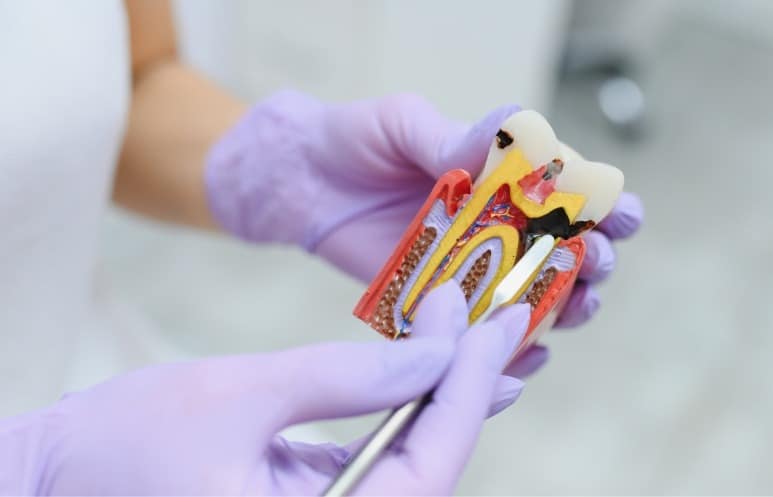Caries treatment

Cavities are the most common form of dental disease. Because it affects, or has affected, almost everyone, and because it's basically benign and easy to treat, we tend to take it lightly. Yet it's a progressive infection that can rapidly worsen and cause severe damage. That's why the team at the Centre dentaire Taschereau in Brossard places great importance on treating dental caries.


How do cavities form?
Simply put, tooth decay is a bacterial infection that appears as a hole in a tooth. It forms when microbes in the mouth concentrate on the surface of a tooth. This happens when they feed on sugary residues. They multiply and produce acidic waste products that can damage or even puncture tooth enamel (the tooth's protective outer layer). Although superficial at first, infection can worsen as the bacteria that caused it penetrate deeper into the tooth.
Stages of decay
At this stage, decay only affects the enamel. It generally causes no pain or sensitivity, and can only be detected by the presence of a small black spot visible during a preventive examination. A spot may also form beforehand, and then develop into a cavity;
2
The bacteria have then spread into the dentin (the solid part of the tooth beneath the enamel). Infection may cause dentine oversensitivity (sensitivity to hot and cold), or even mild pain. As with the first stage, this type of decay can usually be treated with a simple filling;
3
At this point, the bacteria have reached the living center of the tooth. The decay then becomes pulpitis, an infection of the pulp that can lead to a number of consequences (sustained pain, weakening of the tooth leading to its loss, development of a dental abscess, etc.). To stop it, a root canal is required;
Treatments for tooth decay
Fortunately, tooth decay is relatively easy to treat, at least in its early stages, thanks to a procedure performed under local anaesthetic. Your dentist first sanitizes the hole made by bacteria before closing it with a filling. We offer white composite resin fillings, as well as the classic grey amalgam fillings. We also offer ceramic inlays, useful when the tooth is fragile or the decay is deeper or more extensive.


